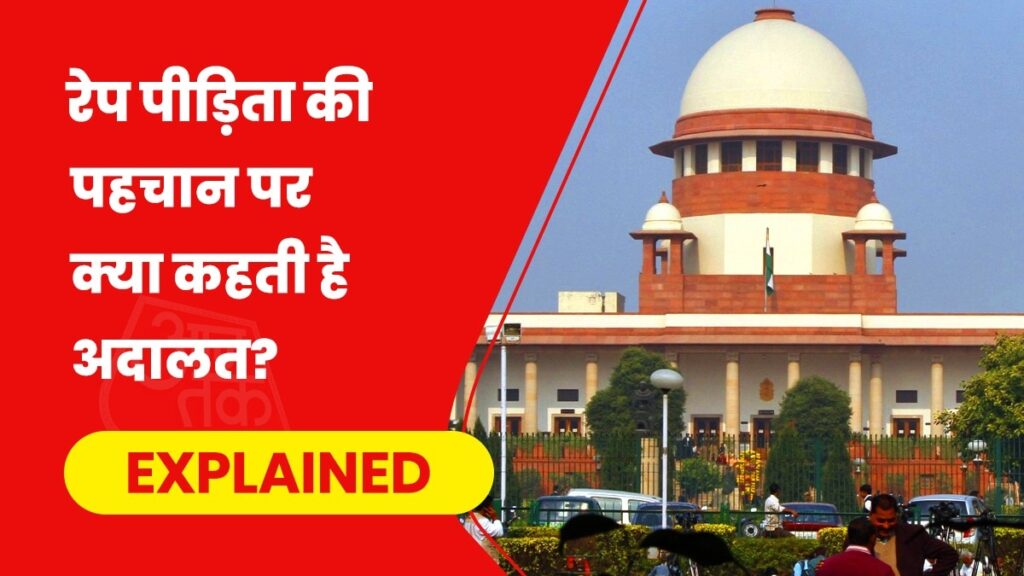The Supreme Court is in action mode on the rape-murder incident that took place in Kolkata’s RG Kar Hospital. The bench of Chief Justice DY Chandrachud, Justice JB Pardiwala and Justice Manoj Mishra said many things during the hearing and also reprimanded people for circulating the name of the victim on social media. In 2012, the Delhi gang rape victim was also called Nirbhaya instead of her real name. Know what happens if someone reveals the identity of a rape victim.
While passing an order, the bench of judges said that social and electronic media are revealing the identity of the deceased, which is wrong. They should immediately remove all the pictures, names, videos and other things from the platform, which may lead to the fear of revealing the identity of the victim.
Under which section is the discussion on identity
Section 72 of the Indian Penal Code (BNS) talks about this. If any person or group reveals the identity of a person who has been sexually abused, publishes his/her pictures or shows them on social media or TV, or who has made such an allegation, then in such a case, the person who reveals the identity can be imprisoned for a few months to two years. Let us tell you that sections 64 to 71 of the BNS talk about rape and sexual abuse of women and children.

When are there exemptions under the law
There are many exceptions in section 72 of BNS, when the person who reveals the identity of the rape victim is not punished. The second part of this section says that in case of the death of the victim, her identity can be revealed only if it is considered very necessary to do so. The right to take a decision in this regard is also with the officers of the level of session judge or above.
The apex court had also said that if the rape victim is an adult and decides to reveal her identity on her own will, without any pressure, then no one can have any objection to it. But the right to decide this is only hers.
In the Hathras case of UP too, some people had revealed the identity of the victim. Even then the court had strictly said that even after death, the dignity of the victim or her family cannot be compromised. This should happen only if it helps in getting justice.
Why the instruction to not reveal the identity
The Supreme Court cited many such cases where the victim and her family had to face troubles after their name was revealed. After the identity is revealed, many people insensitively rub salt into their wounds. Even if the victim wishes, she is unable to return to normal life. To save her from this additional suffering after rape, the courts have been talking about keeping the identity of the victim secret. This is the case in almost all countries of the world.

Instructions for police too
The court also instructed the police officers from time to time to handle the documents related to the case carefully. The reports which contain the identity of the victim should be sealed and sent to the investigating agencies or the court so that confidentiality is maintained.
The Supreme Court has repeatedly reiterated that trial courts and high courts need to maintain the confidentiality of victims. In cases involving juveniles and rape victims, names like X or similar are used to conceal identity. Section 72 of the BNS was earlier Section 228A of the IPC. Under this, the identity of the rape victim or any hint leading to her identity cannot be published.
Are courts allowed to disclose identity?
No ban was imposed on the courts, but the Supreme Court continued to talk about it. It took exception to several cases, including Karnataka and Rajasthan, where the courts had disclosed the identity of the victim during proceedings. In a July 2021 order, the Supreme Court had asked trial court judges to refrain from disclosing the identity of victims of sexual crime cases in their orders.
Source (PTI) (NDTV) (HINDUSTANTIMES)
